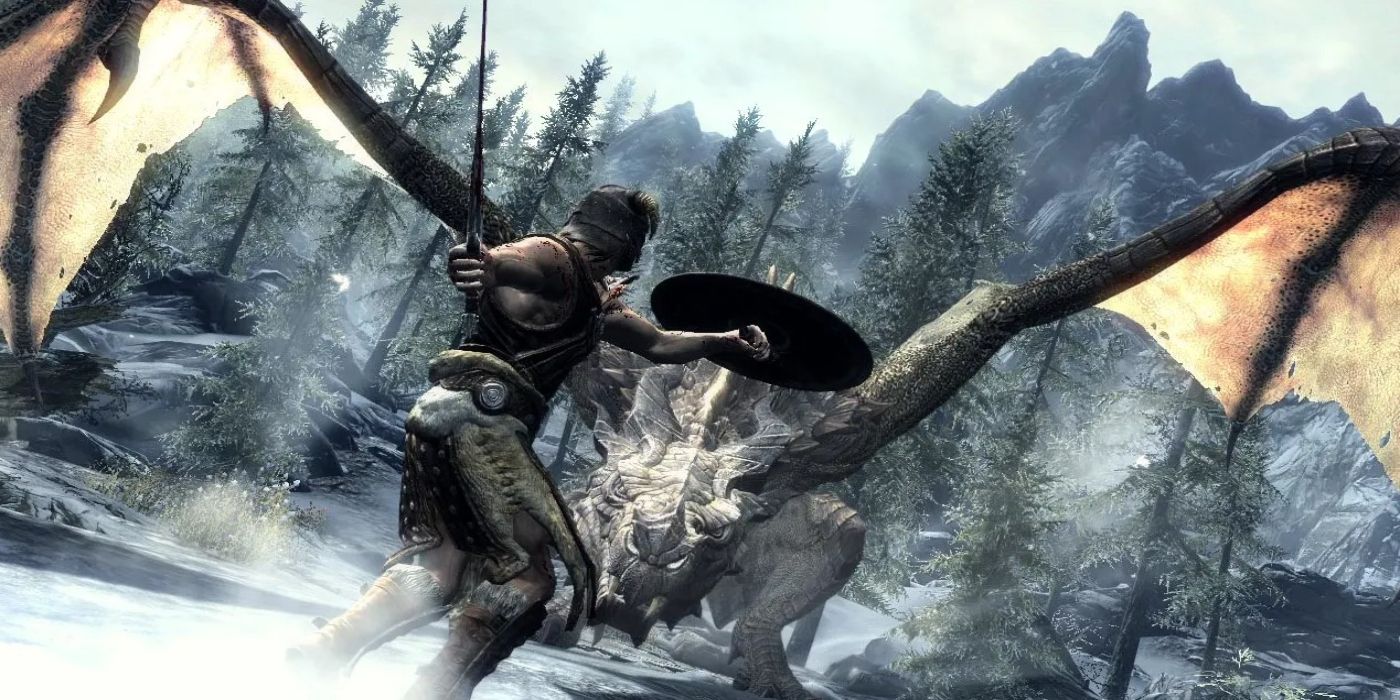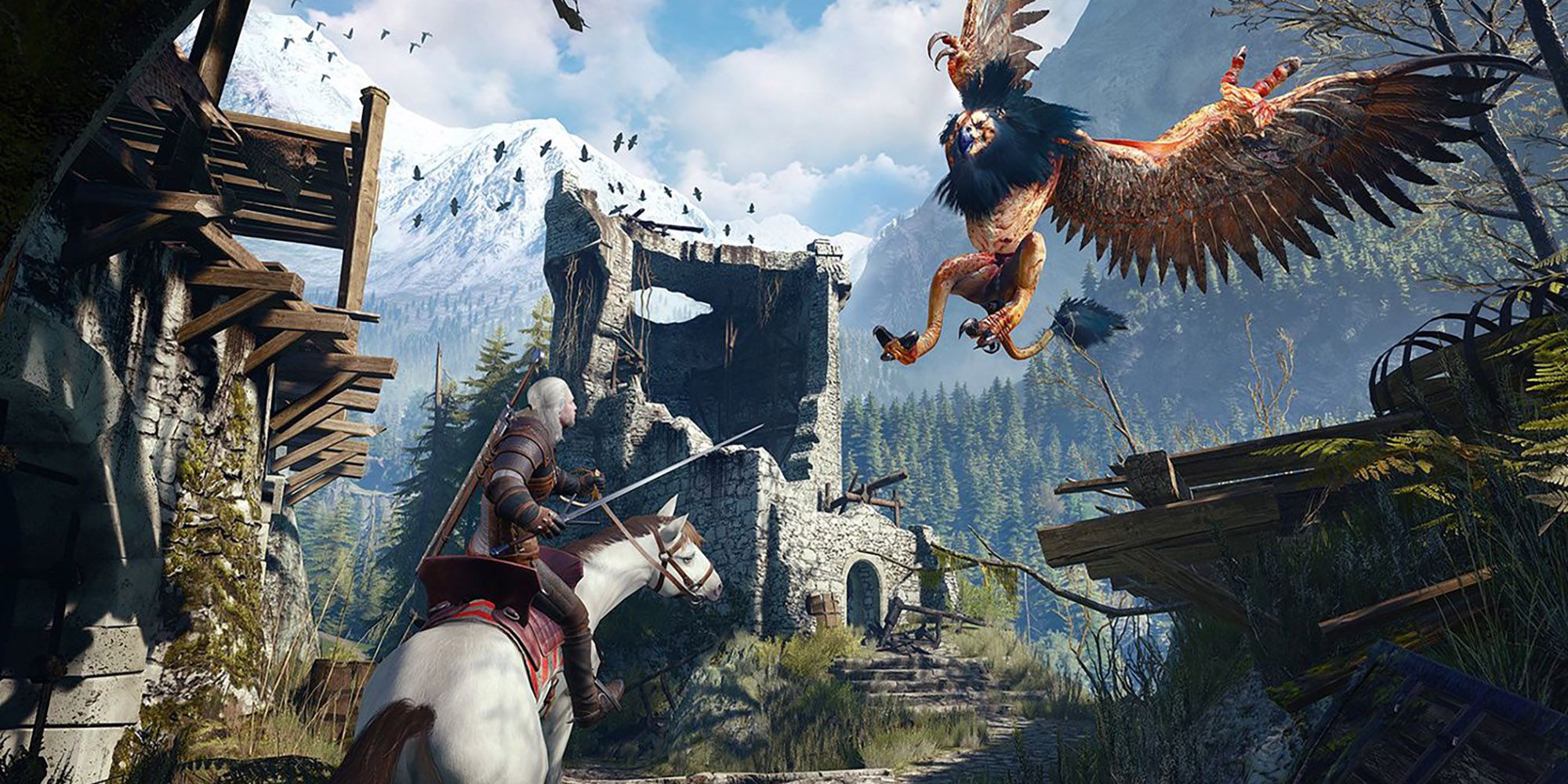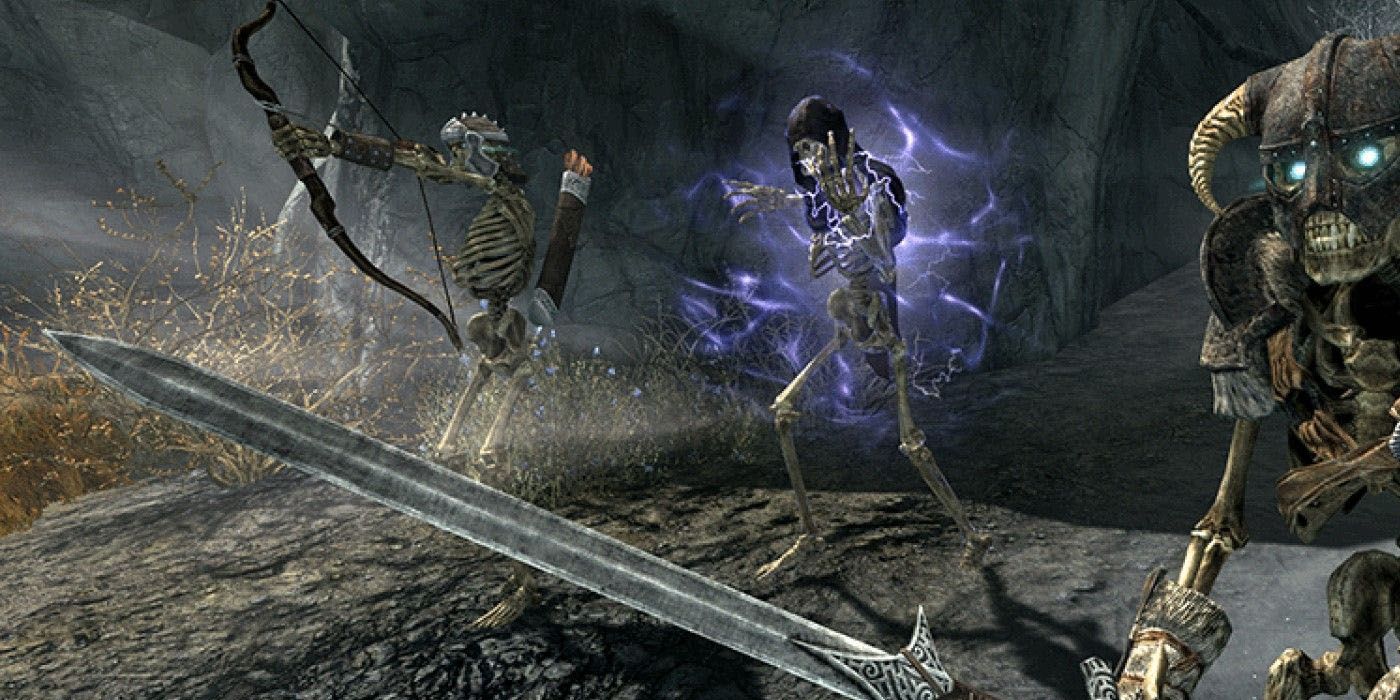The Skyrim: Anniversary Edition marks a decade since the debut of the beloved fantasy game. It is impossible to overstate just what a huge cultural touchstone it is, having sold over 30 million copies and being considered one of the most popular fantasy role-playing games of all time.
The basic plot is surprisingly straightforward. Players assume the role of the Dragonborn, a legendary hero who fights dragons and absorbs their souls while traversing the Norse-inspired realm of Skyrim. Many newer fantasy RPGs have richer stories and more dynamic playing experiences, with The Witcher 3 being the most notable example. However, Skyrim sets itself apart from these other games in a unique way that has allowed it to remain relevant, and that could possibly allow it to outlast them all.
There are a myriad of factors behind the success of Skyrim. For starters, it is the fifth installment in the popular Elder Scrolls series, building upon the lore established in previous games while appealing to an existing fan base. This means that players explore the world's ancient tombs or ally themselves with factions like the Dark Brotherhood, they can reconnect to things they enjoyed in past games. However, that is far from the only reason for the game's success.
Almost everything that people love about fantasy RPGs can be found within Skyrim. The mixture of combat, magic, and stealth mechanics allows players to customize their character to their preferred play style. Playing as the Dragonborn fits into a classic power fantasy of "chosen one" narratives and fighting dragons is more or less the epitome of an epic fantasy adventure. Likewise, exploring a Viking-inspired environment invokes aspects of one of the coolest cultures of medieval Europe - a setting that has since been featured in many games, but was still relatively rare back in 2011.
Despite all of these great traits, Skyrim is still very much a product of its time. In fact, many of the tropes in the game are uncomfortably dated, such as the racially coded Khajiit, who are inspired by negative stereotypes about Romani. Additionally, the very things that make the game "classic" also make it cliched, and the writing is arguably the weakest of any Elder Scrolls game. This is not to say that it is bad, but rather that other newer fantasy RPGs that have come out since are able to handle these elements better.
The easiest example to point to is The Witcher 3. Its protagonist, Geralt of Rivia, hunts a variety of monsters (including several dragon-like beasts) and puts down any humans foolish enough to attack him - giving it a lot in common with Skyrim. Both games are open-world sandboxes, both allow players to mix magic with melee combat, and both have Norse elements (though this is confined to the Isle of Skellige in The Witcher, which is predominantly inspired by Polish folklore).
But The Witcher's writing is objectively better. Even small side quests are filled with shocking, emotional plot twists. Minor throwaway characters have rich backstories and complex personalities. From the treacherous political intrigue to the haunting magic of eldritch curses, this grimdark masterpiece easily surpasses Skyrim.
And it is not alone. Other fantasy RPGs like Dragon Age: Inquisition, God of War, and Breath of the Wild all have advantages that set them above aspects of Skyrim in some way. So what gives the Elder Scrolls V its staying power?
In short, Skyrim refuses to be confined to any single fantasy genre. Many newer games like The Witcher lean into grimdark tropes, giving them a sophisticated moral ambiguity, but offering little in the way of hope. And while Skyrim has plenty of these grimdark elements, it is never limited to a single genre. Rather, it is just as concerned with the brave heroics where good conquers evil, embracing a genre known as noblebright.
The uncomplicated morality of noblebright stories has widespread appeal among fantasy fans, but its simplicity has fallen out of fashion. Similarly, grimdark's depressing and brutal nature can become emotionally tedious if it's overdone. Skyrim strikes a balance between these extremes. Whenever someone plays the game, they can immerse themself in whichever genre resonates at that moment. This gives Skyrim a versatility that fans continue to love, and that they seem unlikely to tire of any time soon.




